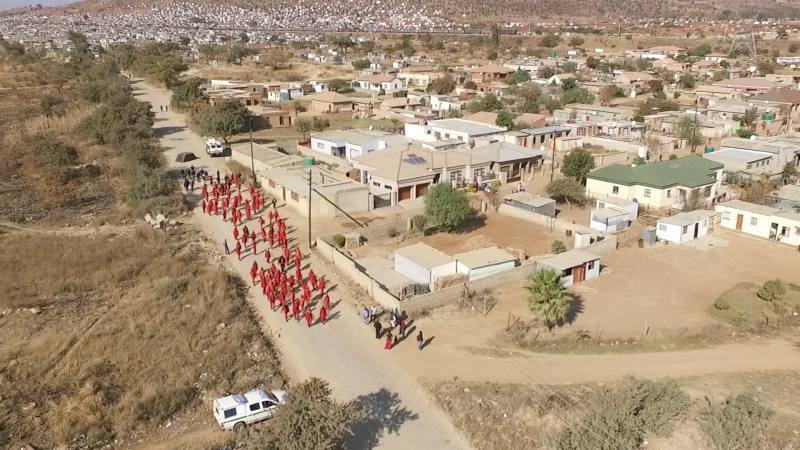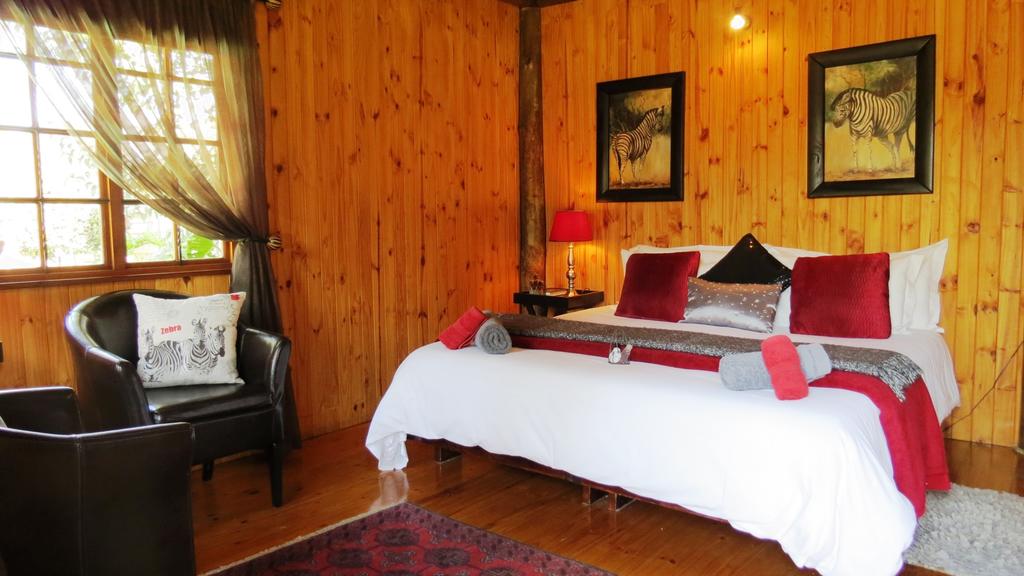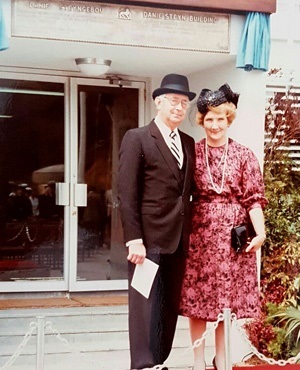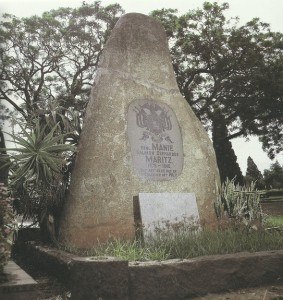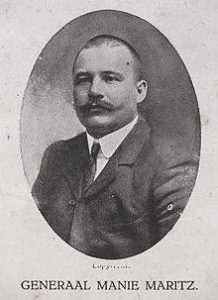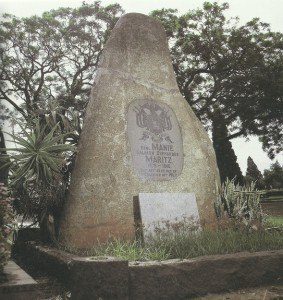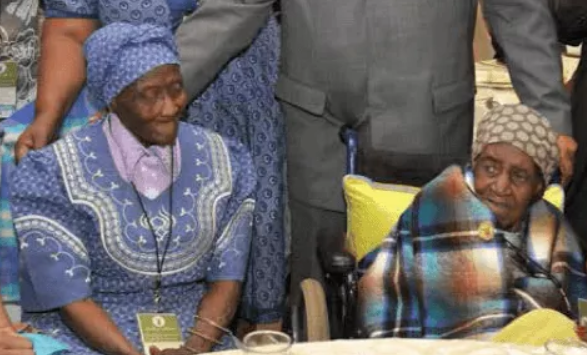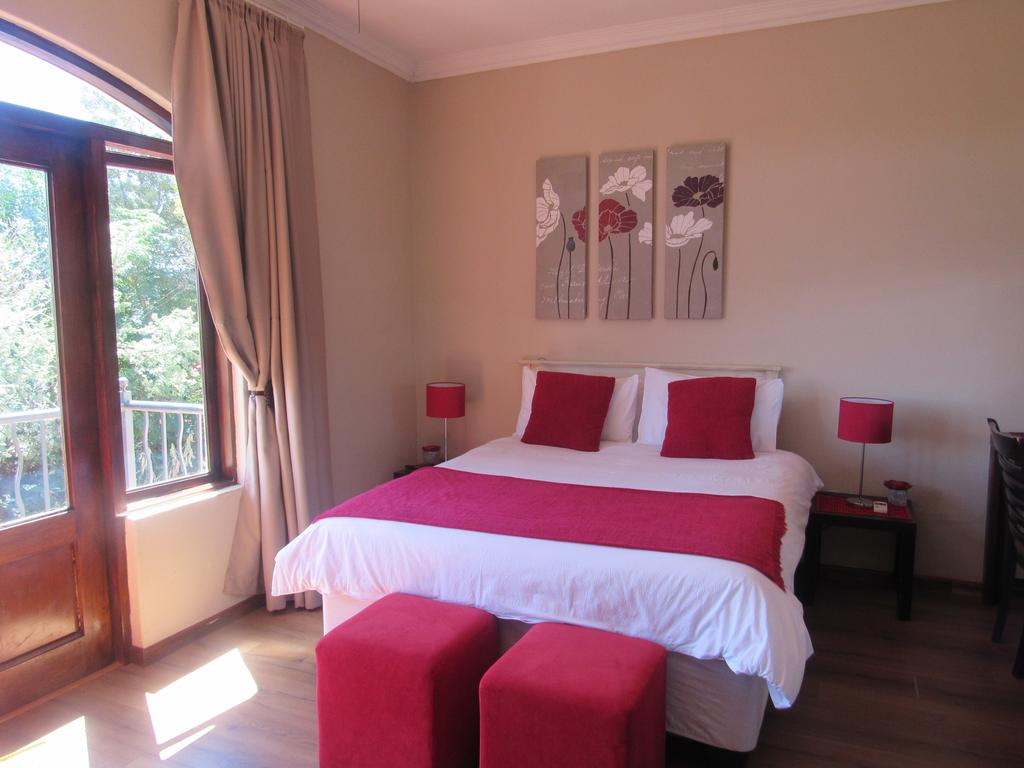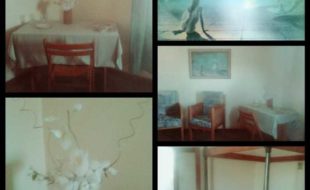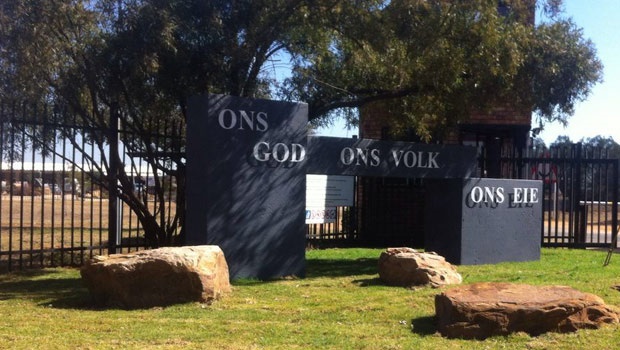
Pretoria – The petrol station attendant warns me I am going to get killed in Kleinfontein.
“Are you sure you want to go there?” he asks, looking concerned, after I stop to ask him for directions.
According to my GPS, I am five minutes away from the settlement, an Afrikaner cultural community near Bronkhorstspruit.
“Yoh my man, the white people are going to kill you there. You are not the right skin colour. They will stop you at the gate and won’t even let you in.”
I tell him I am going to see for myself.
As I approach the entrance, I am scared. Large white letters, “Ons God Ons Volk Ons Eie” (Our God Our People Our Own) are affixed to the grey wall next to the boom gate.
What if the petrol attendant was right?
Tense wait
A skinny, mustachioed man wearing camouflage trousers, black boots and a khaki cap, and holding a clipboard and a pen, approaches me after I stop at the boom.
He asks me in Afrikaans who I’m visiting. I identify myself and tell him I wanted to interview some of the locals, as part of a series of stories News24 is doing for the elections.
He looks like he doesn’t believe me and tells me to park my car while he disappears into the guard hut and calls a supervisor on his walkie-talkie.
After a tense, 10-minute wait, an old model silver-grey Mercedes-Benz approaches the gate. An elderly man gets out and walks towards me. He introduces himself as Jan Groenewald, chairperson of the board of directors, and asks if he can help.
I smile and tell him my reason for being there. The soft-spoken and articulate man smiles and invites me to follow him to the raadsaal (boardroom) for coffee.
No racism allowed
“We are the only access-controlled private settlement with rules that explicitly state that anyone who has an interest here may not resort to any form of racism or violence, or attack any religious groups,” he explains.
The community was founded on a farm in 1992 and is still registered as an informal settlement. Efforts are underway to formalise the settlement with the City of Tshwane.
Groenewald explains that when the farm went on the market in 1992, two men took out a loan to buy it for the Afrikaners in the heartland of the old Boer Republic. Two more joined and they found shareholders to help repay back the loan and get the land developed.
In 1994, there were enough shareholders to pay off the loan and begin providing services.
The first two permanent houses were completed in 1996 and two families became the first permanent residents of Kleinfontein.
Groenewald says they want co-operation with the local authorities to bring stability and support growth.
“We believe in unity, just like the ANC – we believe together we can do more,” Groenewald says.
Not an island
“Many people that stay here probably belong to the Freedom Front Plus, but we do not ask our residents which party they belong to or who they are going to vote for. It’s not a condition for living here that you must belong to a certain party.”
Groenewald introduces me to his colleague, Dannie de Beer. The outspoken man with the firm handshake owns several properties, including the building housing the local internet cafe.
Astonished by the friendliness I have encountered so far, I ask him why the petrol attendants said the whites would kill me.
It was considered a racist town until a few years ago, and those assumptions still linger, he says.
Kleinfontein is not an island, De Beer explains. They operate according to South Africa’s laws. Although Kleinfontein has its own security, they call the police when needed.
They collect their own rubbish, buy electricity from Eskom, use borehole water, and have their own bank, which operates like a stokvel.
Asked if he would vote in the upcoming elections, he says an Afrikaner’s vote does not mean much these days.
“I vote on principle to show that I am still an Afrikaner. I do not expect my vote to make a difference,” he says.
‘We are going down’
He gives me a tour of the town in his bakkie. Most of the houses are three-bedroom, face-brick dwellings, the colour of the dusty, untarred roads. Their walls are low enough for an average person to easily step over. There are no electric fences.
At our first stop, I meet Tinka Viljoen. She worked at the local bank before she became a housewife. Standing outside her one-bedroom house, which De Beer built, she points to the nearby cluster of shacks and caravans where she lived for 11 years. Now she pays De Beer R1 200 a month in rent.
Her house smells of frying oil and salty dough. She is making kaaspoffertjies for her husband, a construction worker. I tell her how nice her kaaspoffertjies smell, and she immediately offers me and “Oom Dannie” some. They have no children. She says she is fortunate to have a roof over her head.
“As long as the ANC leads this country, we are going down,” she says.
We leave for our next stop, and eat the kaaspoffertjies in the car. They are still warm and taste like melted cheese. They are delicious.
Etta Pretorius believes God sees everyone as equal. She works as a receptionist at the old age home and has lived in Kleinfontein for four years. She loves the fact that she and her husband can walk everywhere. Before that she lived in Pretoria and Nelspruit. “Everything is nice here. I don’t ever want to leave,” she says.
She is also voting. “We can move forward in this country. Everyone has a future in this country.”
Michiel Ferreira, 88, has been living in the old age home for five years. He worked in Vanderbijlpark before retiring and moving in with his son in Pretoria. His wife died in 2002. He then lived in Krugersdorp until 2009. His children told him he could not live in a flat all by himself, so in 2011, he landed in Kleinfontein.
Pride
“Soos hulle se in Afrikaans, kyk noord en gaan maar voort (As the saying goes, look north and forge ahead),” Ferreira jokes.
De Beer and I continue our tour of the town. We pass the local rugby field. The Kleinfontein rugby and netball teams compete against the white Northern Cape enclave of Orania annually.
“When Orania plays in Kleinfontein, Kleinfontein wins, and when Kleinfontein plays in Orania, Orania wins,” De Beer jokes.
De Beer is waiting at the gate the next day, when I return with video reporter, Lerato Sejake. I introduce her and he compliments her on her beautiful doek.
This time our first stop is the statue of Hendrik Verwoerd and their Paardekraal monument. They got the statue from Midvaal, after the Democratic Alliance-run municipality took it down in 2011, he explains.
During a drive through the koppies, De Beer points out where the trenches to lay the cables to provide Wi-Fi will be dug. They are still raising the money to install it.
On one koppie, we overlook the battlefield of the Battle of Diamond Hill (Donkerhoek), where Boer commandos and British forces clashed on June 11, 1900. Twenty-eight British soldiers and three Boers were killed.
There is pride in his voice as he speaks about the “boere” defeat of the British that day. It is a history lesson he learnt from his father.
As we make our way back through the dusty roads, children are playing on the rugby field. It reminds me of growing up in Middelburg, Eastern Cape, where as a child all I wanted to do was play outside until the street lights came on.
Source: Iavan Piljoos, News24
